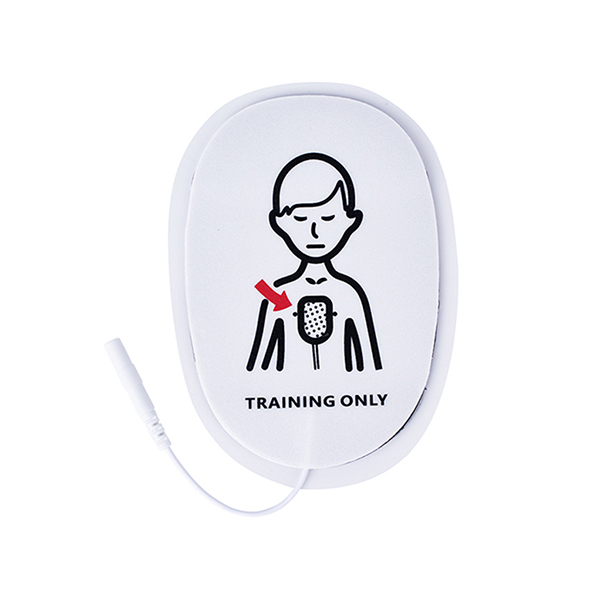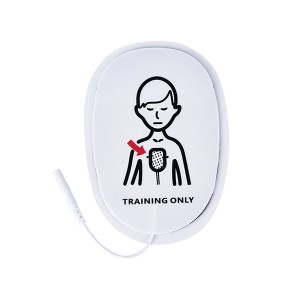
Products
AED Defibrillator Replacement Training Pad For Child
Product Video
Product Specification
| Product Type | AED Training Replacement Pad |
| Model Number | TE-D21 |
| Sizes | 70x103mm |
| Backing | Foam |
| Gel | Chinese gel |
| Liner | PET paper printed with instruction |
| Color | White |
| Cable | Soft PVC with Plug |
| Label | Stick on the cable and outer bag |
| Packing | 1set in an aluminum foil bag |
| Report | ROHS/Biocompatibility report |
| Certificate | CE/ISO13485/FDA |
Product Advantage
√ AED electrode pads which can be used with world famous branded AED teenager trainer.
√ Self-adhesive, reusable and durable.
√ Stable impedance and excellent conductivity.
√ Reusable: more repeated use without diminished effectiveness to reduce electrode pad each application cost.
√ Super Economical.
Product Detail
• The pad's thickness is 2.0mm, white foam backing gum.
• No glue, no electrical. Substrate is the white PVC, its thickness is 0.22mm.
• With white color wires, no electric connection, 2.0mm connector.
• Single wire diameter is φ2.4mm, with a warning marks and 2pin yellow plug.
How to choose the electrodes
- For manual defibrillators, adult electrodes are 10 to 13 cm in diameter.
- Children's electrodes are about 8 cm in diameter (usually for children 1 to 8 years old).
- Infants' electrodes are 4 to 5 cm in diameter (for children 1 and under).
Position of electrode pads
> The chest electrode plate is placed under the right anterior wall of the clavicle, and the apex electrode plate is placed at the apex of the heart (left side of the left nipple). The distance between the two electrodes should not be less than 10cm. This is called the anterior apex (anteroposterior or standard) and is more uniform.
> One electrode is placed under the right anterior wall clavicle, and the other electrode plate is placed under the left shoulder blade of the back.
> One plate is placed at the apex of the heart and the other plate at the right shoulder Angle behind the client.
> The sternal electrode plate was placed in the left subscapular area, and the apex electrode plate was placed under the left nipple (5th to 6th intercostal in the left axillary front).
> Two electric shocks were respectively placed in the left subscapular area and the level of the fourth intercostal space at the left margin of the sternum.
















